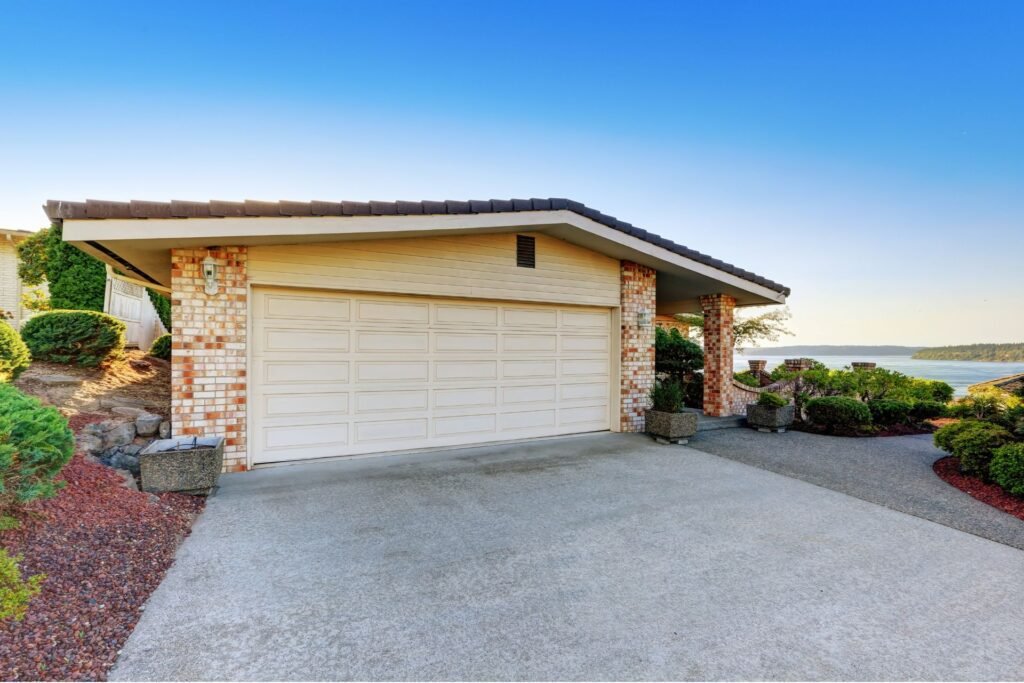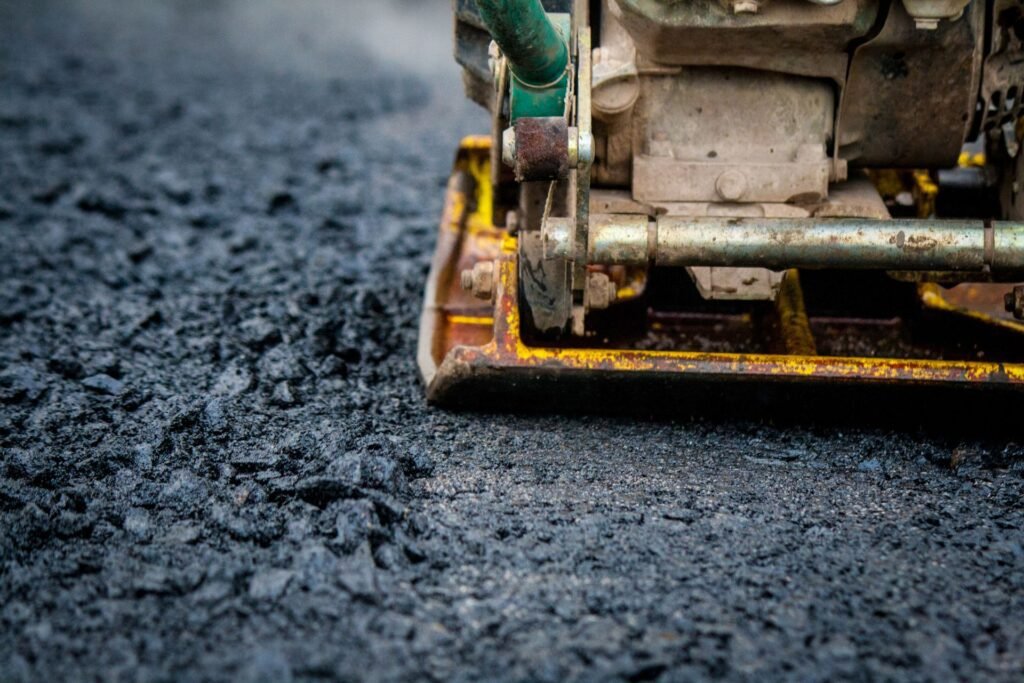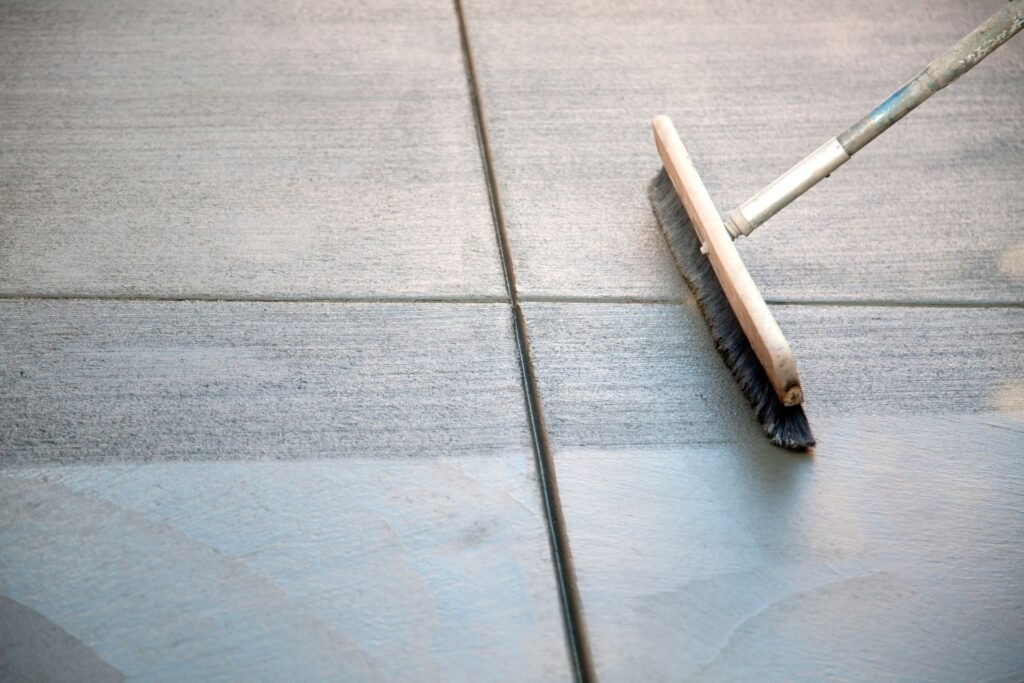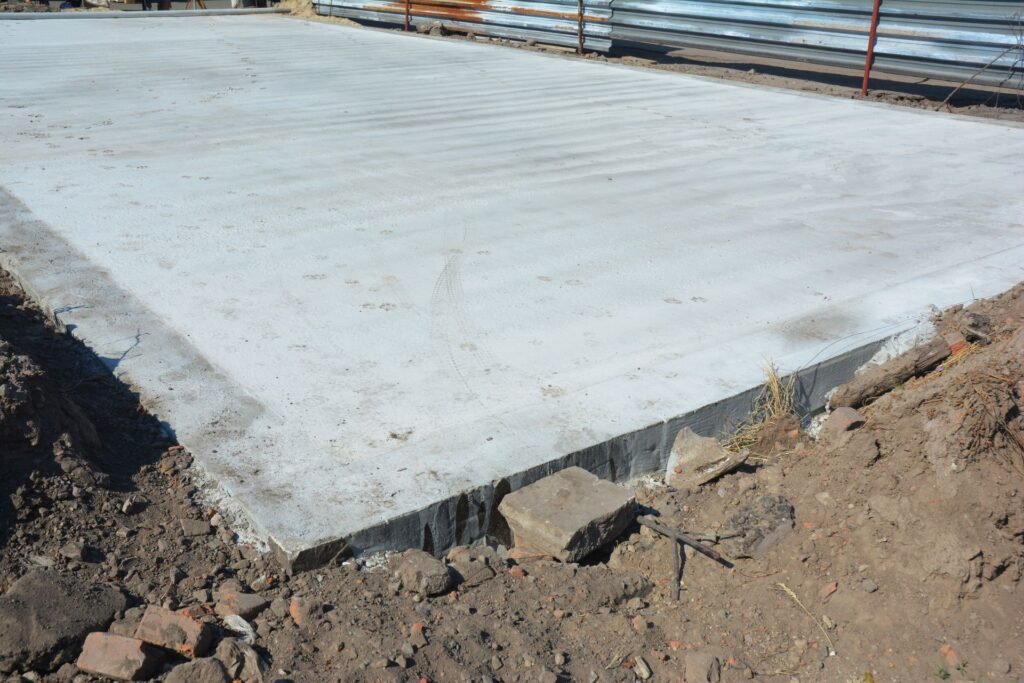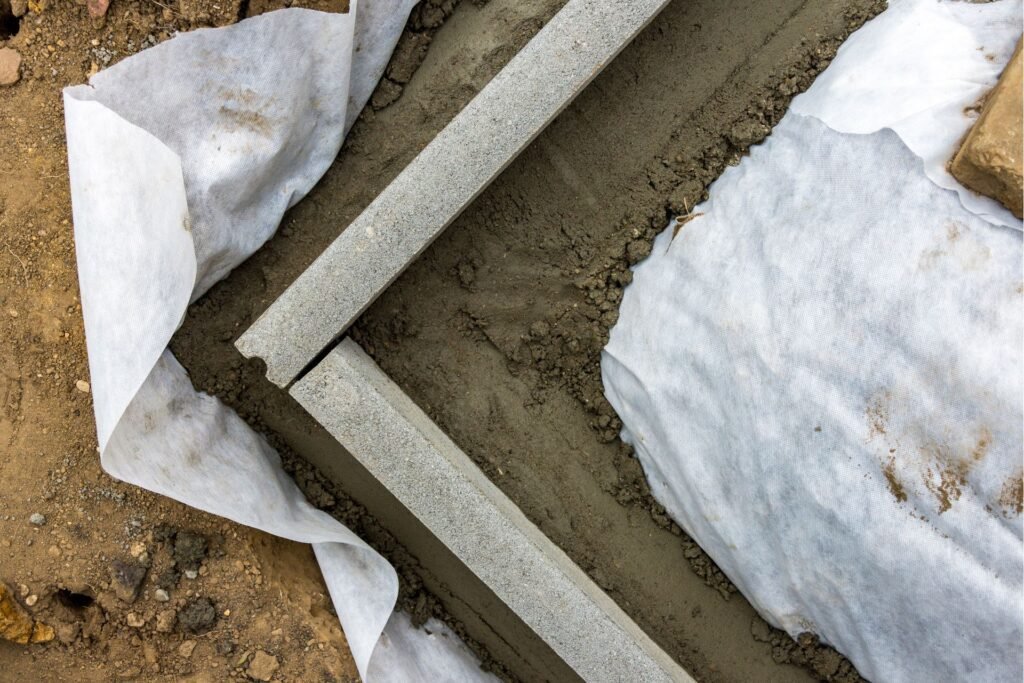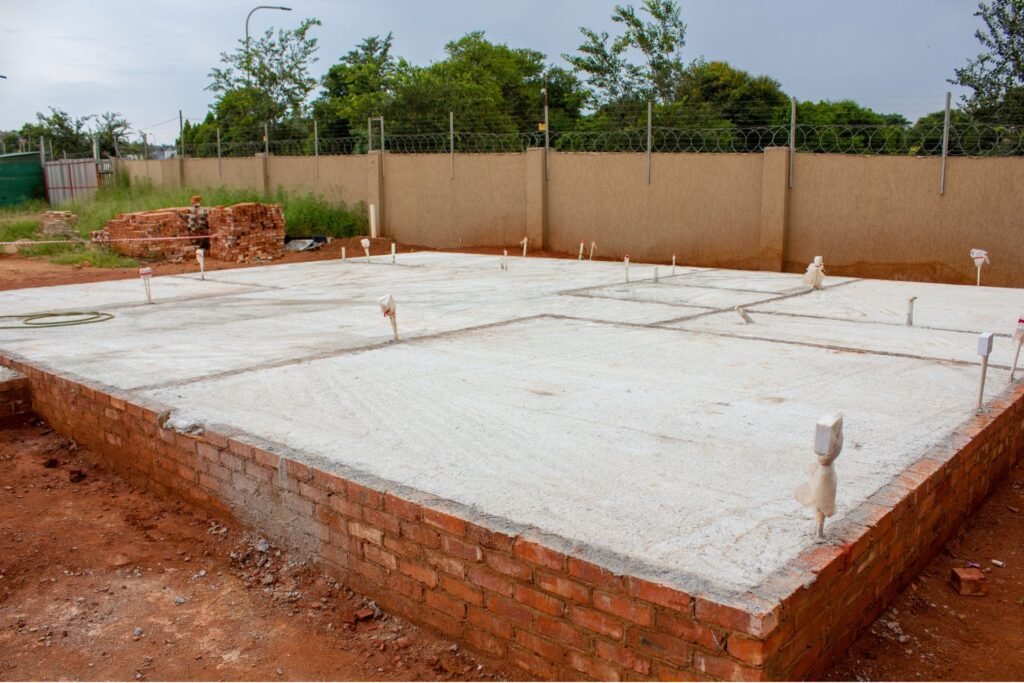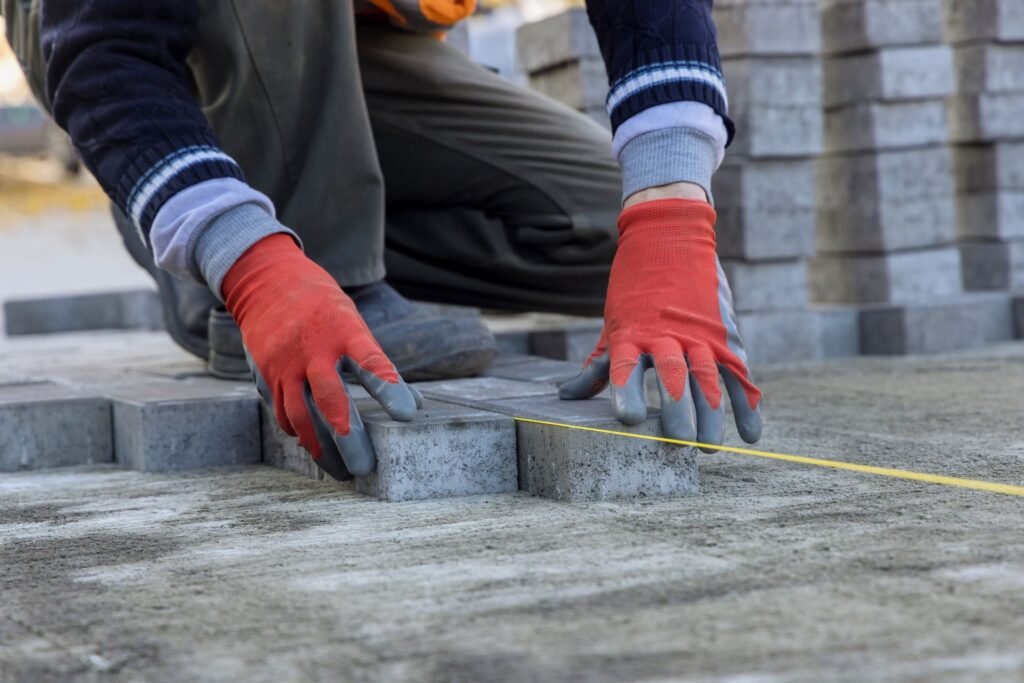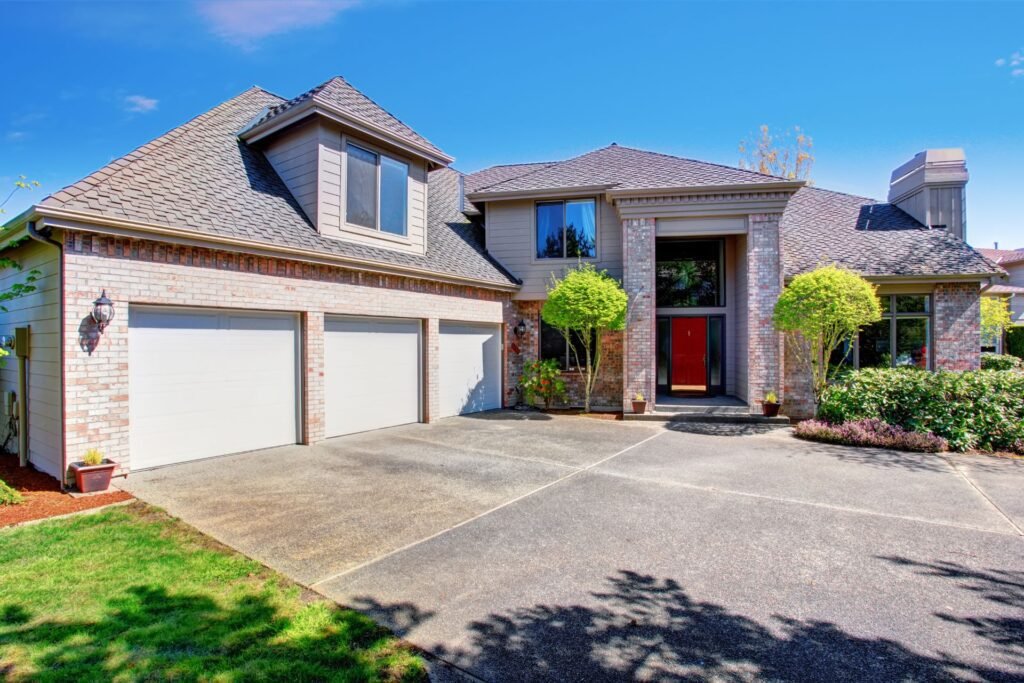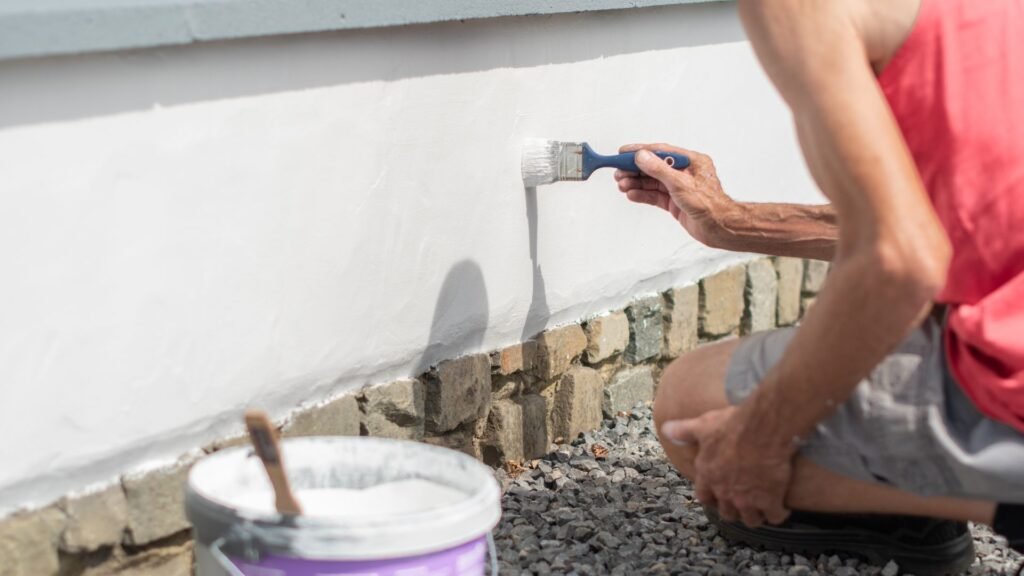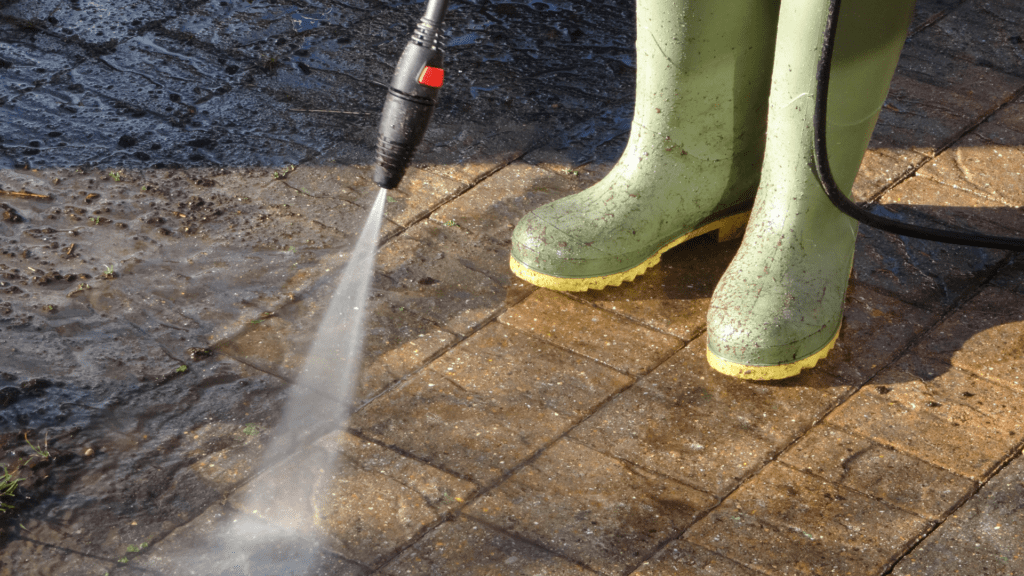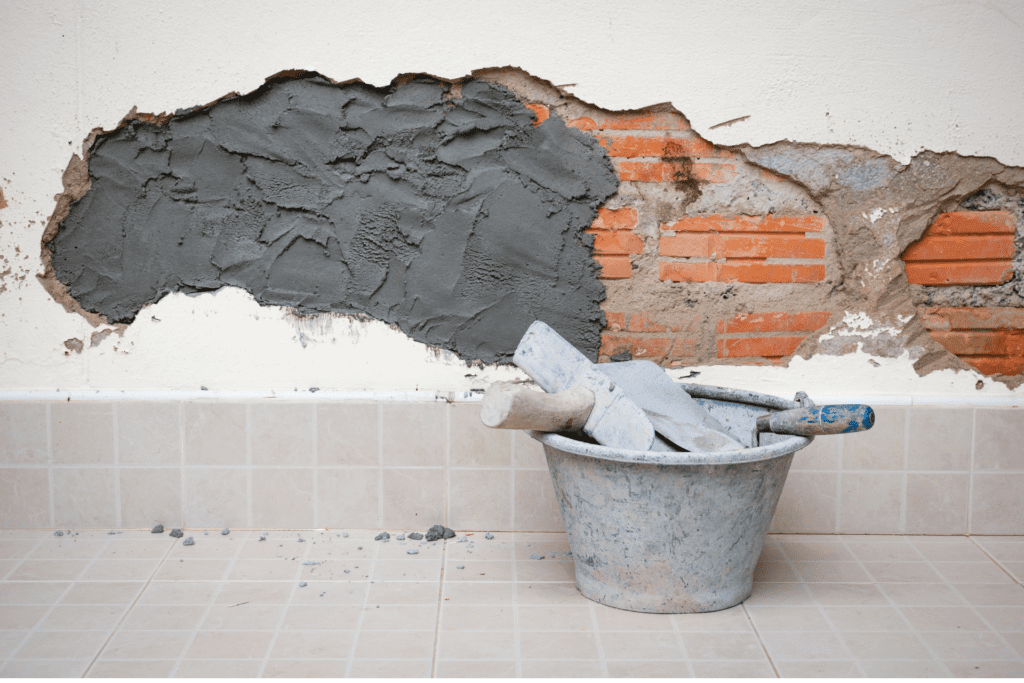Welcome to the ultimate guide on concrete driveway finishes in New Zealand! If you’re considering upgrading your driveway or starting fresh with a new one, you’ve come to the right place. Choosing the right finish for your concrete driveway is not just about enhancing the curb appeal of your home; it’s also about selecting a durable, low-maintenance option that stands up to New Zealand’s unique climate. In this comprehensive guide, we’ll explore the most popular concrete finishes available in NZ, from exposed aggregate to stamped designs, and provide you with all the information you need to make an informed decision. Whether you’re looking for inspiration, practical tips, or just want to understand your options better, this guide has got you covered. Let’s dive in and discover the perfect finish for your concrete driveway!
A popular concrete driveway finish in NZ is exposed aggregate, known for its durability, slip resistance, and natural, textured appearance. This finish reveals the beauty of embedded stones, creating a visually appealing and functional surface ideal for New Zealand’s diverse climate. Other popular options include stamped concrete, which mimics high-end materials like stone or brick, and colored concrete, offering a wide range of hues to match any home style. Choosing the right finish depends on factors like aesthetics, budget, and maintenance preferences.
Table of Contents
Why Choose A Concrete Driveway?
Choosing the right material for your driveway is crucial, not only for enhancing the curb appeal of your home but also for ensuring long-lasting value. Concrete driveways have become increasingly popular among homeowners in New Zealand, and for good reasons. Below, we delve into why a concrete driveway might be the best choice for your property.
Durability and Longevity
One of the primary reasons homeowners opt for concrete driveways is their impressive durability and longevity. New Zealand’s climate can be quite diverse, ranging from hot summers to wet winters. Concrete is remarkably resilient, capable of withstanding these varying weather conditions without deteriorating. Unlike asphalt, which can crack or soften under intense heat, or pavers that may shift and become uneven, concrete remains solid and intact. This durability translates into long-term value, as a well-installed concrete driveway can easily last 30 years or more with minimal issues. The upfront investment pays off over time, making concrete a cost-effective choice for those who plan to stay in their homes for the long haul.
Low Maintenance
In addition to its strength, concrete is known for its low maintenance requirements. While other materials like asphalt may need regular sealing and pavers may require weed control between the joints, a concrete driveway is comparatively hassle-free. A simple wash with a garden hose or a pressure washer a few times a year is usually all it takes to keep it looking clean and fresh. Moreover, concrete driveways are less prone to staining, especially when properly sealed, making them ideal for households with frequent vehicle use. The reduced need for maintenance not only saves you time but also reduces long-term costs, allowing you to enjoy a pristine driveway without the ongoing effort.
Customizable Aesthetics
A common misconception about concrete driveways is that they lack visual appeal. In reality, concrete offers a wide array of customization options that can complement any home style. Whether you prefer a sleek, modern look or something more rustic, concrete can be finished in various textures, patterns, and colors to match your vision. You can opt for stamped concrete that mimics the appearance of stone, brick, or even wood, providing the aesthetic benefits of these materials without their drawbacks. Additionally, colored concrete allows you to choose hues that blend seamlessly with your home’s exterior or make a bold statement. This versatility ensures that your driveway not only serves a functional purpose but also enhances the overall aesthetic of your property.
In conclusion, a concrete driveway is an excellent choice for New Zealand homeowners who value durability, low maintenance, and customizable aesthetics. By investing in concrete, you’re not just creating a path to your garage; you’re making a long-term investment in your home’s value and curb appeal.

Popular Concrete Driveway Finishes In NZ
Concrete driveways in New Zealand have evolved beyond the basic grey slab. Homeowners today seek not only functionality but also aesthetics and durability. To meet these needs, various concrete finishes have gained popularity across the country. Below, we explore the top concrete driveway finishes that offer the perfect blend of style, practicality, and longevity.
1. Exposed Aggregate Finish
What is an Exposed Aggregate Finish?
An exposed aggregate finish is a decorative surface achieved by removing the top layer of cement paste to reveal the natural texture and color of the embedded aggregates, such as pebbles, stones, or crushed gravel. This process creates a visually appealing, textured surface that stands out for its unique appearance.
Aesthetic Appeal
The natural, textured look of exposed aggregate complements various landscaping styles, making it a popular choice for driveways. Whether your home features a modern, minimalist design or a more traditional aesthetic, an exposed aggregate finish can seamlessly blend with the surroundings, enhancing your property’s curb appeal.
Durability and Slip Resistance
One of the key advantages of an exposed aggregate finish is its durability. The tough surface can withstand heavy vehicle traffic and resist wear over time. Additionally, the textured surface provides excellent slip resistance, which is particularly valuable in New Zealand’s often wet and rainy climate. This makes it a safe option for households concerned about reducing the risk of slips and falls.
Customization Options
Exposed aggregate is highly customizable, offering a variety of aggregates to choose from. You can select pebbles, crushed stone, or a mix of different materials to achieve the desired look and feel. This flexibility allows homeowners to create a driveway that is truly unique and tailored to their taste.
2. Stamped Concrete Finish
Understanding Stamped Concrete
Stamped concrete is a versatile finish where the concrete surface is imprinted with patterns that mimic the appearance of other materials like stone, brick, or even wood. This technique allows you to achieve a high-end look without the cost or maintenance associated with natural materials.
Versatility in Design
One of the standout features of stamped concrete is its design versatility. There’s a wide range of patterns, textures, and colors available, enabling homeowners to replicate the appearance of more expensive materials. Whether you’re aiming for the look of cobblestone, slate, or brick, stamped concrete can deliver it with precision.
Cost-effectiveness
Compared to the cost of genuine stone or brick, stamped concrete is a more affordable alternative. It provides the same visual appeal at a fraction of the price, making it an excellent choice for homeowners who want a luxurious look without breaking the bank.
Durability Considerations
While stamped concrete is durable, it requires regular maintenance to keep its appearance intact. Sealing the surface periodically will help protect the stamped design from wear, fading, and cracking. With proper care, a stamped concrete driveway can remain beautiful and functional for many years.
3. Coloured Concrete Finish
What is Coloured Concrete?
Colored concrete is achieved by adding pigments either integrally (mixed into the concrete) or through surface staining. This allows for a wide variety of hues, from subtle earth tones to vibrant shades, giving homeowners the ability to customize their driveway’s color.
Aesthetic Flexibility
With colored concrete, the design possibilities are endless. You can select colors that match your home’s exterior or create striking contrasts to make your driveway a focal point. Whether you prefer a warm terracotta, cool grey, or a bold shade, colored concrete can be tailored to suit your vision.
UV Stability and Maintenance
Maintaining the color vibrancy of your concrete finish requires attention to UV stability. Using UV-resistant pigments and sealants can help prevent fading over time. Regular cleaning and resealing are recommended to keep the colors looking fresh and vibrant for years.
4. Brushed Concrete Finish
Defining a Brushed Concrete Finish
A brushed concrete finish, also known as broom-finished concrete, is created by dragging a stiff broom over the surface of freshly laid concrete. This technique results in a subtle, linear texture that is both simple and functional.
Practical Benefits
The brushed finish is renowned for its non-slip properties, making it an excellent choice for sloped driveways or areas with high foot traffic. The texture provides grip, reducing the risk of slips, especially in wet or icy conditions.
Cost Considerations
One of the most significant advantages of brushed concrete is its affordability. It offers a practical, non-slip surface at a lower cost compared to other decorative finishes. Despite its budget-friendly nature, brushed concrete doesn’t compromise on functionality, making it a smart choice for homeowners who need an economical yet effective driveway solution.
Choosing the right concrete driveway finish is about balancing aesthetics, durability, and budget. In New Zealand, where weather conditions can vary, selecting a finish that offers both beauty and functionality is crucial. Whether you prefer the natural charm of exposed aggregate, the luxurious look of stamped concrete, the vibrant possibilities of colored concrete, or the practicality of a brushed finish, there’s an option to suit every home and style.

Factors To Consider When Choosing A Concrete Driveway Finish
When selecting the perfect finish for your concrete driveway, it’s essential to weigh several key factors. These considerations ensure that your choice not only enhances your home’s curb appeal but also performs well under the specific conditions it will face. Below, we’ll dive into the most critical elements to consider, including climate, style, budget, and maintenance.
1. Climate Considerations
New Zealand’s diverse climate plays a significant role in determining the best concrete finish for your driveway. Depending on your location, you might face anything from wet conditions to intense sunlight, both of which can impact the performance and longevity of your driveway finish.
- Wet Regions: If you live in an area with frequent rainfall, prioritizing slip resistance is crucial. Textured finishes, such as broomed or exposed aggregate, offer excellent traction, reducing the risk of slips and falls during wet weather.
- Sunny Areas: On the other hand, in regions with high UV exposure, choosing a finish that maintains its color and structural integrity is essential. Opt for UV-stable sealers or lighter-colored finishes that reflect sunlight rather than absorb it, helping to prevent fading and cracking over time.
By aligning your choice with your local climate, you’ll ensure that your driveway remains both functional and attractive, no matter the weather.
2. Home Style and Curb Appeal
Your driveway is one of the first things people notice about your home, so it’s essential to choose a finish that complements your property’s architectural style. A harmonious design can significantly boost your home’s curb appeal and overall value.
- Modern Homes: For contemporary or minimalist homes, sleek finishes like polished concrete or smooth trowel may be ideal. These finishes provide a clean, sophisticated look that matches modern design aesthetics.
- Traditional Homes: If your home leans towards a more classic or rustic style, finishes like exposed aggregate or stamped concrete, which mimic natural stone or brick, can blend seamlessly with the existing architecture.
Consider your home’s color palette, design elements, and overall vibe when selecting a finish. A well-chosen driveway can tie the entire exterior design together, creating a cohesive and visually appealing look.
3. Budget Constraints
While it’s tempting to go all out with a high-end finish, it’s important to find a balance between aesthetics and affordability. Different finishes come with varying costs, so it’s essential to understand your options and how they fit within your budget.
- Basic Finishes: Options like broom-finished or trowel-finished concrete are generally more affordable and provide a simple yet effective solution. They offer durability and functionality without breaking the bank.
- Mid-Range Finishes: Stamped concrete or exposed aggregate are mid-tier options that offer a more decorative appearance without the high cost of premium finishes. These provide a good mix of style and affordability.
- High-End Finishes: If budget isn’t a concern, polished concrete or intricate stamped designs can create a luxurious look. While these options are more expensive, they offer exceptional beauty and longevity.
When considering your budget, also factor in long-term costs such as maintenance and repairs. Investing in a quality finish upfront can save money in the long run by reducing the need for frequent upkeep.
4. Maintenance Requirements
Different concrete finishes require varying levels of maintenance, which can affect your decision based on how much time and effort you’re willing to invest in upkeep. Understanding the maintenance needs of each option will help you select a finish that fits your lifestyle.
- Low-Maintenance Finishes: Broom-finished and trowel-finished concrete typically require minimal upkeep. A periodic cleaning and resealing every few years are usually sufficient to keep them in good shape.
- Moderate-Maintenance Finishes: Stamped concrete and exposed aggregate might need more attention, especially if they’re in high-traffic areas. Regular resealing and occasional repairs to any chips or cracks are necessary to maintain their appearance and durability.
- High-Maintenance Finishes: Polished concrete requires more frequent maintenance to preserve its glossy finish. This includes regular cleaning, buffing, and resealing to prevent dulling or staining.
Choosing a finish that aligns with your willingness to perform regular maintenance will ensure that your driveway stays attractive and functional for years to come.
Selecting the right concrete driveway finish involves more than just picking what looks good. By considering the climate, your home’s style, budget, and maintenance requirements, you can make an informed decision that enhances your property’s value and stands the test of time. Whether you prioritize durability, aesthetic appeal, or cost-efficiency, understanding these factors will guide you to the best choice for your home.

The Installation Process: What To Expect
When embarking on a new installation project, understanding the process from start to finish is crucial. This guide will walk you through the installation process, offering insights into each step, timeline considerations, and advice on hiring a professional contractor in New Zealand.
Step-by-Step Overview
The installation process typically begins with site preparation. This step involves clearing the area, leveling the ground, and ensuring a solid foundation for the installation. Whether it’s a driveway, patio, or other outdoor surface, proper preparation is key to the long-term durability and appearance of the finished product.
Once the site is ready, the base material is laid down. For concrete installations, this might involve placing a gravel base and compacting it to ensure stability. For other materials like pavers or decking, the base preparation will vary accordingly. After the base is set, the primary material—whether it be concrete, pavers, or timber—is installed.
Following the installation of the main material, the finishing touches are applied. This could include edging, sealing, or staining, depending on the project. For instance, concrete installations may require joint cutting to prevent cracking, followed by sealing to protect the surface. Paver installations might need sand applied between the joints to lock them in place.
Timeline Considerations
The timeline for an installation project can vary based on the complexity and scope of the job. For example, a straightforward concrete driveway might take only a few days from start to finish, while more intricate projects, such as custom patios with decorative elements, may take a week or more.
It’s important to consider curing time, especially for concrete installations. Concrete typically requires at least 24-48 hours to set before it can be walked on, and about 7 days before it can bear weight from vehicles. However, full curing can take up to 28 days, so it’s crucial to plan accordingly to avoid any disruptions.
Weather conditions also play a significant role in the timeline. For example, in regions of New Zealand where rain is common, it might be necessary to allow extra time for drying and curing, particularly during the wetter months.
Hiring a Professional
When it comes to installation projects, hiring a reputable contractor is essential to ensuring quality results. In New Zealand, selecting the right contractor involves several key considerations:
1. Check Credentials and Experience: Ensure the contractor is licensed and has experience with the specific type of installation you need. Ask to see examples of their previous work and request references from past clients.
2. Ask the Right Questions: During consultations, inquire about their process, timeline estimates, and how they handle unexpected issues. A professional contractor should be transparent about costs, materials, and the potential for delays.
3. Get Multiple Quotes: It’s wise to obtain at least three quotes to compare pricing and services. Be wary of quotes that are significantly lower than others, as this can be a red flag for subpar materials or workmanship.
4. Read Reviews and Testimonials: Online reviews and testimonials can provide valuable insight into the contractor’s reputation. Look for feedback regarding punctuality, communication, and the quality of the final product.
By following these tips, you can find a contractor who will deliver high-quality work, ensuring your installation project is completed to the highest standard. Whether you’re installing a new driveway, patio, or any other outdoor feature, a well-planned installation process and a skilled professional can make all the difference in the outcome.

Inspiring Ideas For Concrete Driveway Finishes
Your driveway plays a crucial role in the overall curb appeal of your home. It’s one of the first things people notice, so making it stand out with a beautiful finish can enhance your property’s aesthetic and value. Whether you’re building a new driveway or upgrading an existing one, there are numerous ways to make your concrete driveway in New Zealand both functional and visually appealing. Below, we explore some inspiring ideas for concrete driveway finishes that can transform your outdoor space.
Showcase Examples: Stunning Driveway Finishes Across New Zealand
New Zealand homeowners have embraced various styles when it comes to concrete driveway finishes. From the sleek, modern look to the rustic charm, there are countless options to suit every taste. Consider these examples:
1. Exposed Aggregate Driveways: A popular choice in NZ, exposed aggregate reveals the natural textures and colors of stones within the concrete, creating a distinctive, durable surface. This finish not only adds grip, making it safer in wet conditions but also offers a wide range of color options to complement your home’s exterior.
2. Stamped Concrete: For those seeking a more decorative touch, stamped concrete offers the look of stone, brick, or even wood, without the high maintenance. This method involves pressing a pattern into the wet concrete, allowing homeowners to mimic more expensive materials at a fraction of the cost.
3. Polished Concrete: Ideal for modern homes, polished concrete provides a sleek and sophisticated finish. This highly durable option is easy to maintain and can be customized with different levels of gloss, from matte to high shine, depending on your preference.
4. Colored Concrete: For those who want to add a pop of color to their driveway, colored concrete is an excellent choice. You can choose from a wide array of hues, from earthy tones that blend seamlessly with natural surroundings to bold colors that make a statement.
Combining Finishes: Create a Unique Look
Why settle for just one finish when you can mix and match to create something truly unique? Combining different textures and colors can result in a standout design that adds personality to your driveway.
- Example 1: Pair a smooth, polished concrete border with an exposed aggregate center for a striking contrast that highlights the beauty of both finishes.
- Example 2: Integrate colored concrete bands or geometric patterns within a stamped concrete driveway to create visual interest and a customized look.
- Example 3: Use a mix of finishes to define specific areas, such as creating a designated parking space or a pathway leading to the front door, enhancing both functionality and aesthetics.
Design Trends in NZ: What’s Popular Now
As with any home improvement, driveway finishes are subject to trends that evolve over time. In New Zealand, several trends are making waves in the world of concrete driveways:
1. Eco-Friendly Finishes: Sustainability is a growing concern, and many homeowners are opting for eco-friendly concrete options. Permeable concrete, which allows water to pass through and reduces runoff, is becoming increasingly popular for its environmental benefits.
2. Textured and Patterned Surfaces: Homeowners are moving away from plain concrete surfaces and embracing textures and patterns that add depth and interest. Herringbone, cobblestone, and ashlar slate patterns are among the favorites.
3. Neutral Tones with a Twist: While natural and neutral tones remain popular, many are adding a twist with subtle color variations or speckles to break up the monotony and add a touch of uniqueness.
4. Low-Maintenance Finishes: There’s a growing demand for low-maintenance driveway finishes. Polished concrete and exposed aggregate are especially favored for their durability and minimal upkeep requirements.
Whether you’re inspired by the rugged beauty of exposed aggregate or the clean lines of polished concrete, there’s a driveway finish that’s perfect for your home. By exploring the possibilities and staying informed about the latest trends, you can create a driveway that not only enhances your property’s curb appeal but also stands the test of time. Consider mixing finishes for a custom look that’s truly yours, and take inspiration from the stunning examples found throughout New Zealand.

Cost Breakdown And Budgeting Tips
When planning a driveway project in New Zealand, understanding the cost breakdown and effective budgeting is crucial. This section will help you navigate through the average costs, factors influencing expenses, and practical tips to stay within your budget without compromising on quality.
Average Costs in New Zealand
The cost of a driveway in New Zealand can vary significantly depending on several factors, such as the materials used and the complexity of the design. On average:
- Concrete Driveways: Typically range from $70 to $120 per square meter. The price may increase depending on the finish, with exposed aggregate or colored concrete costing more.
- Asphalt Driveways: Generally cost between $40 and $80 per square meter. Asphalt is a popular choice for its durability and smooth finish.
- Gravel Driveways: The most cost-effective option, ranging from $30 to $60 per square meter. While cheaper, gravel driveways may require more maintenance.
- Paved Driveways: Paving can cost anywhere from $80 to $150 per square meter, depending on the quality and type of pavers chosen.
These estimates provide a rough guideline, but the final cost can fluctuate based on several factors.
Factors Influencing Cost
Several key factors impact the overall cost of your driveway:
1. Driveway Size: Naturally, the larger the area, the higher the cost. It’s essential to measure your space accurately to avoid surprises.
2. Complexity of Design: Driveways with curves, slopes, or intricate patterns require more labor and materials, increasing the overall cost. Additionally, any excavation work or drainage solutions needed can add to the expense.
3. Choice of Materials: The material you select plays a significant role in determining the final price. For example, decorative concrete or high-quality pavers will cost more than basic asphalt or gravel.
4. Site Preparation: If your site requires significant leveling, excavation, or drainage work, these additional preparations can drive up the cost. It’s important to factor in these potential expenses during the planning phase.
5. Labor Costs: Labor is a major component of the total cost, and rates can vary across regions in New Zealand. Hiring experienced professionals might be more expensive upfront, but it ensures a durable and aesthetically pleasing result.
Budgeting Advice
To stay within budget while still achieving a high-quality finish, consider the following tips:
1. Plan and Prioritize: Start with a clear vision of what you want and prioritize essential features. Identify where you can compromise if needed—perhaps opting for a simpler design or more affordable materials.
2. Get Multiple Quotes: Don’t settle for the first quote you receive. Obtain estimates from several contractors to compare prices and services. This also gives you leverage for negotiating a better deal.
3. Choose Durable Materials: While it might be tempting to choose the cheapest option, investing in durable materials can save you money in the long run by reducing maintenance and repair costs.
4. Consider Phased Installation: If your budget is tight, consider completing the project in stages. For instance, you might initially install a basic gravel driveway and later upgrade to a more refined finish when funds allow.
5. DIY Where Possible: If you have the skills, tackling some parts of the project yourself—such as preparing the site or laying gravel—can significantly reduce labor costs.
6. Plan for Contingencies: Unexpected costs can arise, so it’s wise to allocate an additional 10-15% of your budget for unforeseen expenses. This cushion ensures that you won’t be caught off guard by any surprises.
By carefully considering these factors and following these budgeting tips, you can create a driveway that meets your needs without breaking the bank. Remember, the key to a successful project lies in thorough planning, informed decision-making, and a clear understanding of where your money is going.

Long-Term Care And Maintenance
Maintaining your driveway in top condition is crucial not just for aesthetic appeal, but also for its longevity. A well-maintained driveway can significantly enhance your property’s curb appeal while reducing the need for costly repairs in the future. Here’s how to ensure your driveway remains in pristine condition for years to come:
Regular Cleaning Tips
To keep your driveway looking its best, regular cleaning is essential. Over time, driveways accumulate dirt, debris, and stains from oil spills, leaves, and other materials. A simple yet effective cleaning routine can make a world of difference:
1. Sweeping: Regularly sweep your driveway to remove loose dirt, leaves, and debris. This prevents stains and mold growth caused by decaying organic material.
2. Pressure Washing: For a deeper clean, use a pressure washer to eliminate stubborn stains and grime. Ensure the pressure setting is appropriate for your driveway material to avoid damage.
3. Detergents and Degreasers: For oil stains, apply a suitable driveway cleaner or degreaser. Let it sit for a few minutes, then scrub with a stiff brush and rinse thoroughly.
4. Stain Removal: For specific stains like rust or paint, use targeted stain removers. Always follow the manufacturer’s instructions to avoid damaging your driveway surface.
Regular cleaning not only keeps your driveway looking fresh but also prevents long-term damage that can lead to cracks or discoloration.
Sealing and Protection
Sealing your driveway is a vital step in protecting it from the elements. Over time, exposure to sun, rain, snow, and chemicals can degrade your driveway’s surface, leading to cracks, fading, and other damage. Applying a high-quality sealant provides a protective layer that enhances durability and maintains its aesthetic appeal.
1. Timing: The best time to seal your driveway is every 2-3 years, depending on the material and the climate. Ensure that the driveway is clean and free of any debris before sealing.
2. Choosing the Right Sealant: Different driveway materials require different types of sealants. For instance, asphalt driveways benefit from an asphalt-based sealant, while concrete driveways may need an acrylic or epoxy-based product.
3. Application: Apply the sealant evenly across the driveway surface using a brush, roller, or sprayer. Pay special attention to edges and corners, as these areas are often more vulnerable to wear and tear.
4. Drying and Curing: Allow the sealant to dry completely, which usually takes 24-48 hours. Avoid using the driveway during this period to ensure the sealant sets properly.
Sealing not only enhances the appearance of your driveway but also extends its life by protecting it from weathering, UV rays, and chemical spills.
Repair and Restoration
Even with regular maintenance, cracks and discoloration may eventually occur due to natural wear and tear, weather conditions, or heavy use. Addressing these issues promptly can prevent further damage and restore your driveway’s appearance.
1. Crack Repair: Small cracks can often be repaired with a DIY crack filler. Clean the crack thoroughly, apply the filler, and smooth it out with a trowel. For larger cracks or potholes, consider professional repair services, as they may require specialized materials and techniques.
2. Discoloration Solutions: Discoloration can occur due to UV exposure, chemical spills, or aging. Applying a fresh coat of sealant can often restore the color, but in some cases, resurfacing may be necessary.
3. Professional vs. DIY: While minor repairs can be handled with DIY methods, larger issues like deep cracks, significant discoloration, or structural damage should be addressed by professionals. They have the tools, experience, and materials to ensure the job is done correctly, prolonging the life of your driveway.
4. Preventative Measures: To minimize the need for repairs, address any small issues as soon as they arise. Regular inspections, especially after harsh weather, can help identify potential problems before they worsen.
By following these long-term care and maintenance tips, you can keep your driveway looking great and functioning properly for years to come. Investing a little time in upkeep now will save you from more significant expenses and hassles down the road, ensuring that your driveway continues to add value and curb appeal to your home.

FAQs: About Concrete Driveway Finishes NZ
What are the most popular concrete driveway finishes in NZ?
The most popular concrete driveway finishes in NZ include exposed aggregate, stamped concrete, colored concrete, and brushed concrete. Each offers unique aesthetic and functional benefits, allowing homeowners to choose the best option to match their style and needs.
How does exposed aggregate concrete differ from other finishes?
Exposed aggregate concrete is created by removing the top layer of concrete to reveal the embedded stones or aggregates beneath. This results in a textured, slip-resistant surface that is both durable and visually appealing, making it a popular choice for New Zealand driveways.
Is stamped concrete a good option for NZ driveways?
Yes, stamped concrete is an excellent option for NZ driveways. It offers the appearance of high-end materials like stone, brick, or wood at a more affordable cost. Additionally, it’s versatile in design, allowing for various patterns and colors to match your home’s aesthetic.
How long does a concrete driveway typically last in New Zealand?
A well-constructed and properly maintained concrete driveway can last 25 to 30 years or more in New Zealand. Factors like climate, usage, and maintenance practices can influence its longevity.
What maintenance is required for concrete driveway finishes?
Maintenance varies depending on the finish, but generally includes regular cleaning to remove dirt and debris, periodic sealing to protect against stains and weather damage, and timely repairs of any cracks or chips to prevent further deterioration.
Can I combine different concrete finishes for my driveway?
Yes, combining different concrete finishes is possible and can create a unique and visually striking driveway. For example, you can pair a colored concrete border with an exposed aggregate center or mix stamped patterns with plain concrete for contrast.
How much does it cost to install a concrete driveway finish in NZ?
The cost of installing a concrete driveway finish in NZ varies depending on factors such as the size of the driveway, the chosen finish, and any additional customizations. On average, prices range from $90 to $150 per square meter, with more intricate finishes like stamped concrete on the higher end.
Is colored concrete prone to fading in NZ’s climate?
Colored concrete can fade over time, especially when exposed to direct sunlight and harsh weather conditions. However, using UV-resistant sealers and maintaining the concrete properly can help preserve the color for many years.
How do I choose the right concrete driveway finish for my home?
Choosing the right finish depends on several factors, including your home’s architectural style, your budget, the local climate, and your maintenance preferences. Consider consulting with a professional contractor who can provide recommendations based on your specific needs.
Do I need to seal my concrete driveway, and how often should it be done?
Yes, sealing your concrete driveway is highly recommended as it helps protect the surface from stains, moisture, and wear. For most finishes, it’s advisable to reseal the driveway every 2 to 3 years, although this can vary based on usage and environmental conditions.
Conclusion
In conclusion, selecting the right concrete finish for your driveway is crucial to enhancing both the aesthetic appeal and durability of your home’s exterior. We’ve discussed various finish types, from sleek polished surfaces to textured and stamped designs, each offering unique benefits depending on your needs and style preferences. When choosing a finish, it’s essential to consider factors such as climate, maintenance, and budget, all of which can significantly impact the longevity and appearance of your driveway. Equally important is professional installation, as expert craftsmanship ensures the finish is applied correctly and will withstand the test of time. Now is the perfect time to explore your options, consult with a local contractor, and begin planning your driveway upgrade. Investing in a well-finished concrete driveway not only adds value to your property but also enhances its overall curb appeal and functionality, making it a smart choice for any homeowner looking to elevate their outdoor space.
About the Author:
Mike Veail is a recognized digital marketing expert with over 6 years of experience in helping tradespeople and small businesses thrive online. A former quantity surveyor, Mike combines deep industry knowledge with hands-on expertise in SEO and Google Ads. His marketing strategies are tailored to the specific needs of the trades sector, helping businesses increase visibility and generate more leads through proven, ethical methods.
Mike has successfully partnered with numerous companies, establishing a track record of delivering measurable results. His work has been featured across various platforms that showcase his expertise in lead generation and online marketing for the trades sector.
Learn more about Mike's experience and services at https://theleadguy.online or follow him on social media:

